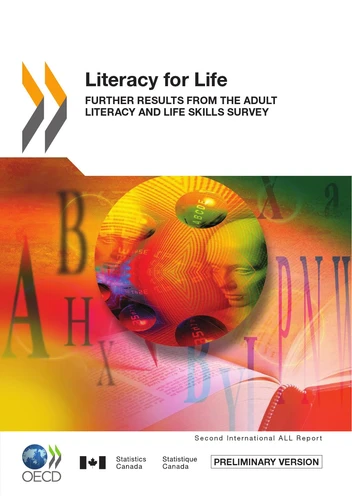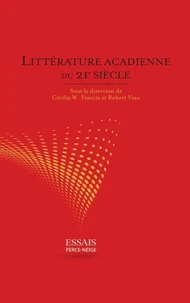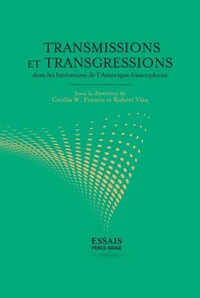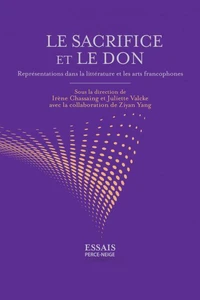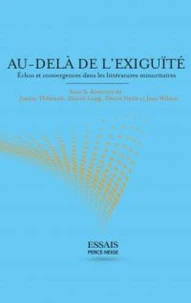Literacy for Life. Further Results from the Adult Literacy and Life Skills Survey
Par :Formats :
Disponible dans votre compte client Decitre ou Furet du Nord dès validation de votre commande. Le format PDF est :
- Compatible avec une lecture sur My Vivlio (smartphone, tablette, ordinateur)
- Compatible avec une lecture sur liseuses Vivlio
- Pour les liseuses autres que Vivlio, vous devez utiliser le logiciel Adobe Digital Edition. Non compatible avec la lecture sur les liseuses Kindle, Remarkable et Sony
 , qui est-ce ?
, qui est-ce ?Notre partenaire de plateforme de lecture numérique où vous retrouverez l'ensemble de vos ebooks gratuitement
Pour en savoir plus sur nos ebooks, consultez notre aide en ligne ici
- Nombre de pages292
- FormatPDF
- ISBN978-92-64-09126-9
- EAN9789264091269
- Date de parution20/12/2011
- Copier Coller01 page(s) autorisée(s)
- Protection num.Digital Watermarking
- Taille3 Mo
- Transferts max.Autorisé
- Infos supplémentairesPDF avec Watermark
- ÉditeurOECD
Résumé
Literacy for Life is the second report from the Adult Literacy and Life Skills Survey. It presents additional results on the nature and magnitude of the literacy gaps faced by OECD countries and how these gaps have evolved over the medium term.
It offers new insights into the factors that influence the formation of adult skills in various settings - at home and at work - for the eleven countries participating in the first and last round of data collection between 2003 and 2008.
The study offers comparative evidence on the impact of various factors on the supply of skill. The study offers a special focus on numeracy skills and problem solving skills. It explores the relationships between numeracy and key socio-demographic factors as well as labour market outcomes and earnings. It highlights the importance of problem solving skills by defining this foundational skill and by exploring its determinants as well as its relative role in influencing important labour market outcomes. The report offers also an analysis of performance across multiple skill domains.
It investigates the skill profiles of various population groups defined in terms of the demographic and socioeconomic characteristics of those who score at levels deemed to be low in one or more skill domains and explores the resulting consequences. The report concludes by investigating the issue of skill mismatch in the labour market and its relationship to adult learning. The extent and distribution of mismatch between the day-to-day literacy related requirements of workers and the literacy skills they have obtained is an important issue that is being explored in this study.
The study offers comparative evidence on the impact of various factors on the supply of skill. The study offers a special focus on numeracy skills and problem solving skills. It explores the relationships between numeracy and key socio-demographic factors as well as labour market outcomes and earnings. It highlights the importance of problem solving skills by defining this foundational skill and by exploring its determinants as well as its relative role in influencing important labour market outcomes. The report offers also an analysis of performance across multiple skill domains.
It investigates the skill profiles of various population groups defined in terms of the demographic and socioeconomic characteristics of those who score at levels deemed to be low in one or more skill domains and explores the resulting consequences. The report concludes by investigating the issue of skill mismatch in the labour market and its relationship to adult learning. The extent and distribution of mismatch between the day-to-day literacy related requirements of workers and the literacy skills they have obtained is an important issue that is being explored in this study.
Literacy for Life is the second report from the Adult Literacy and Life Skills Survey. It presents additional results on the nature and magnitude of the literacy gaps faced by OECD countries and how these gaps have evolved over the medium term.
It offers new insights into the factors that influence the formation of adult skills in various settings - at home and at work - for the eleven countries participating in the first and last round of data collection between 2003 and 2008.
The study offers comparative evidence on the impact of various factors on the supply of skill. The study offers a special focus on numeracy skills and problem solving skills. It explores the relationships between numeracy and key socio-demographic factors as well as labour market outcomes and earnings. It highlights the importance of problem solving skills by defining this foundational skill and by exploring its determinants as well as its relative role in influencing important labour market outcomes. The report offers also an analysis of performance across multiple skill domains.
It investigates the skill profiles of various population groups defined in terms of the demographic and socioeconomic characteristics of those who score at levels deemed to be low in one or more skill domains and explores the resulting consequences. The report concludes by investigating the issue of skill mismatch in the labour market and its relationship to adult learning. The extent and distribution of mismatch between the day-to-day literacy related requirements of workers and the literacy skills they have obtained is an important issue that is being explored in this study.
The study offers comparative evidence on the impact of various factors on the supply of skill. The study offers a special focus on numeracy skills and problem solving skills. It explores the relationships between numeracy and key socio-demographic factors as well as labour market outcomes and earnings. It highlights the importance of problem solving skills by defining this foundational skill and by exploring its determinants as well as its relative role in influencing important labour market outcomes. The report offers also an analysis of performance across multiple skill domains.
It investigates the skill profiles of various population groups defined in terms of the demographic and socioeconomic characteristics of those who score at levels deemed to be low in one or more skill domains and explores the resulting consequences. The report concludes by investigating the issue of skill mismatch in the labour market and its relationship to adult learning. The extent and distribution of mismatch between the day-to-day literacy related requirements of workers and the literacy skills they have obtained is an important issue that is being explored in this study.

